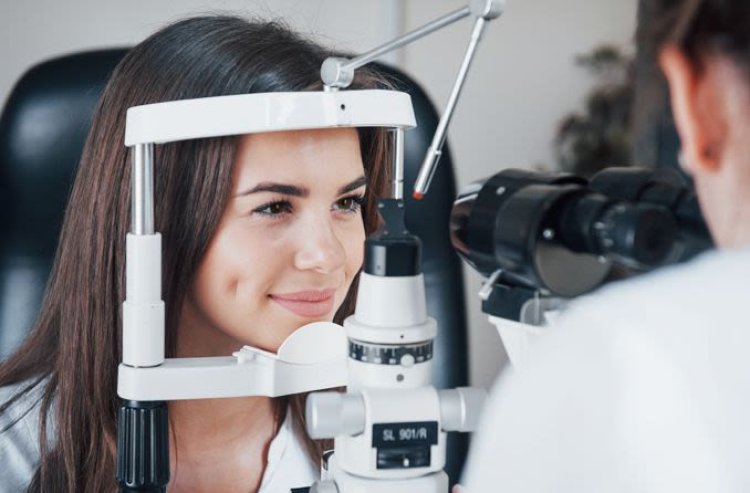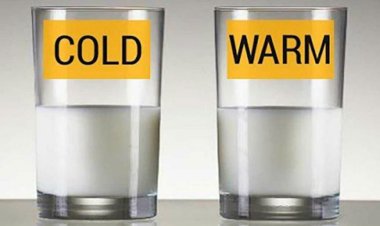Tips to Prevent Vision Loss
Your eyes are an important part of your health. Here are defining the Few Tips to Prevent Vision Loss

Tips to Prevent Vision Loss
Your eyes are an important part of your health. You can do a variety of things to maintain your eyes healthy and ensure optimal vision. Follow these simple guidelines to keep your eyes healthy well into old age.

Here are the Few Tips to Prevent Vision Loss:
Have a comprehensive dilated eye exam. You may believe your vision is normal or that your eyes are healthy, but the only way to be certain is to visit an eye care professional for a comprehensive dilated eye exam. Regarding prevalent vision disorders, some individuals are unaware that they could see better with glasses or contact lenses. Moreover, many common eye diseases, such as glaucoma, diabetic eye disease, and age-related macular degeneration, frequently lack warning symptoms. Only a dilated eye exam can detect these diseases in their earliest phases.
During a comprehensive dilated eye exam, your eye care professional places drops in your eyes to dilate, or broaden, the pupil to allow more light into the eye, similar to how opening a door allows more light into a dark room. This procedure allows your eye doctor to examine the back of your eyes for symptoms of disease or injury. Only your eye care professional can determine if your eyes are healthy and if you have optimal vision.
Maintain your blood sugar levels. 90% of blindness caused by diabetes is preventable. Ask your health care team to help you set and reach goals to manage your blood sugar, blood pressure, and cholesterol—also known as the ABCs of diabetes.
- A1c: The goal set for many people is less than 7% for this blood test, but your doctor might set different goals for you.
- Blood pressure: High blood pressure causes heart disease. The goal is less than 140/90 mmHg for most people, but your doctor might set different goals for you.
- Cholesterol: LDL or “bad” cholesterol builds up and clogs your blood vessels. HDL or “good” cholesterol helps remove the “bad” cholesterol from your blood vessels. Ask what your cholesterol numbers should be.
Know your family’s eye health history. Discuss with your family members their eye health history. Many ocular diseases and conditions are hereditary, so it's essential to know if anyone has been diagnosed with one. This information will assist you in determining whether you are more likely to develop an eye disease or condition.
Eat right to protect your sight. You have heard that carrots are beneficial for the eyes. A diet rich in fruits and vegetables, especially dark leafy greens such as spinach, kale, and collard greens, is essential for maintaining healthy eyes.i According to research, consuming fish rich in omega-3 fatty acids, such as salmon, tuna, and halibut, has benefits for eye health.
Maintain a healthy weight. Being overweight or obese increases your risk of developing diabetes and other systemic conditions that can result in vision loss, including diabetic eye disease and glaucoma. Consult your physician if you are having difficulty maintaining a healthy weight.
Wear protective eyewear. Wear protective eyewear when playing sports or performing household tasks. Protective eyewear consists of safety spectacles and lenses, safety shields, and eye guards that are specially designed to offer the appropriate level of protection for the activity you are engaged in. The majority of protective eyewear lenses are constructed from polycarbonate, which is ten times stronger than other polymers. Many eye care providers and some sporting goods stores sell protective eyewear.
Quit smoking or never start. Smoking is equally harmful to the eyes as it is to the rest of the body. According to research, smoking is associated with an increased risk of developing age-related macular degeneration, cataract, and optic nerve injury, all of which can result in blindness.ii, iii
Be cool and wear your shades. Sunglasses are an excellent fashion adornment, but their primary function is to shield the eyes from the sun's ultraviolet radiation. Look for sunglasses that block 99 to 100 percent of UV-A and UV-B radiation when purchasing.
Give your eyes a rest. If you spend a great deal of time at the computer or concentrating on a single task, you may neglect to breathe and your eyes may become tired. Consider the 20-20-20 rule: Every 20 minutes, gaze approximately 20 feet ahead for 20 seconds. This brief exercise can alleviate eye strain.
Clean your hands and your contact lenses—properly. Always cleanse your hands thoroughly before putting in or removing your contact lenses to avoid the risk of infection. Be certain to disinfect contact lenses as directed and to replace them as necessary. Learn more about maintaining healthy eyes while donning contact lenses and listen to a podcast about eye protection.
Also read: Here are Seven Effective Ways of Taking Care of Your Eyes
Practice workplace eye safety. Employers are obligated to provide a secure workplace. Encourage your colleagues to do the same if they are required to wear protective eyewear as a condition of their employment.
These Tips will be helpful to Prevent Vision Loss












